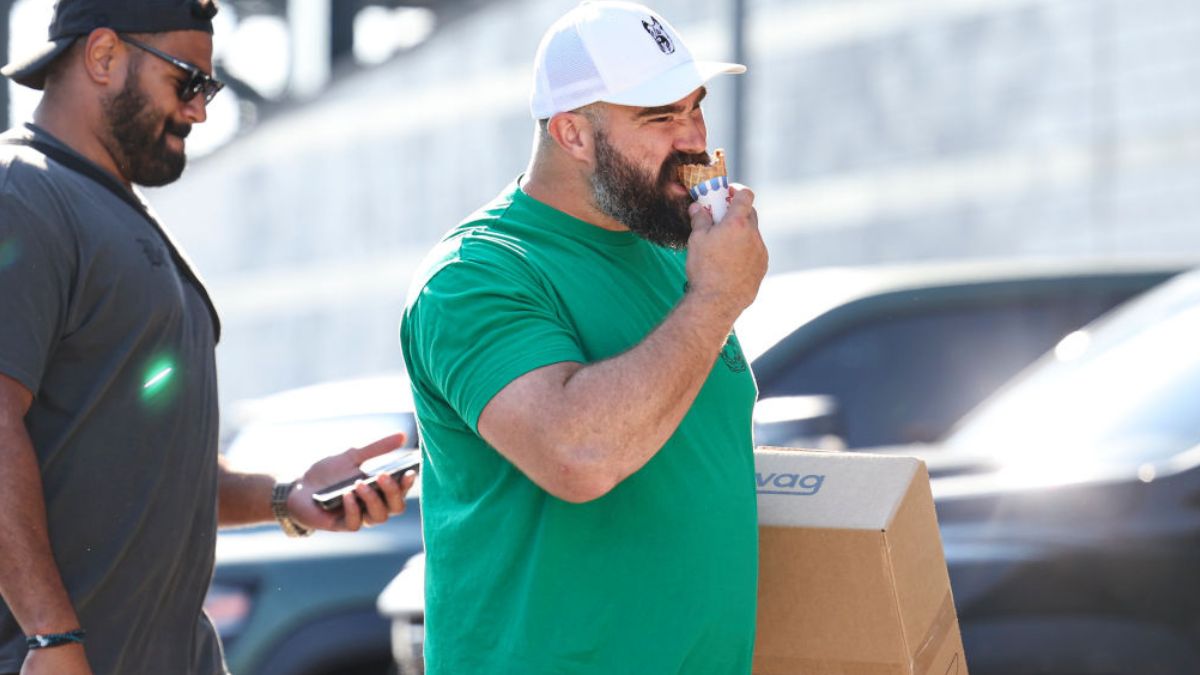Jason Kelce, the retired NFL star, is feeling the heat for his recent cereal endorsement deal with General Mills.
The controversy began after Kelce, together with his brother Travis, announced their partnership with General Mills to create the “Kelce Mix” cereal, combining popular choices like Reese’s Puffs, Cinnamon Toast Crunch, and Lucky Charms. The Kelce brothers shared their childhood memories of devouring their favorite cereals, describing the collaboration as a “full circle moment.” However, the endorsement quickly drew criticism from health advocates.
The backlash stems from a perceived contradiction in Jason’s stance on nutrition and marketing. Notably, Jason had previously criticized the idea of feeding children Reese’s Puffs, equating it to giving them candy for breakfast. His recent move to endorse this very type of cereal strikes many as a sharp reversal, raising eyebrows and questions about the role of athlete endorsements in marketing products that are potentially detrimental to children’s health.
One outspoken critic, Calley Means, an advocate for healthier food options and critic of misleading food marketing, has been vocal about his disappointment. Means argues that in a society grappling with childhood obesity, endorsing high-sugar cereals can exacerbate the problem, suggesting that financial incentives should not override public health concerns. “Athletes should stop sponsoring food that destroys kids’ metabolic health. Some things are more important than money,” Means added in another tweet.
In response to Means’ criticism, Jason Kelce defended his decision to endorse the “Kelce Mix.” He took to X, sharing that he grew up consuming these popular cereal brands and still managed to maintain a healthy and fit lifestyle. Kelce also articulated his stance on balanced eating and responsible parenting. He explained that while he did joke about his father giving them such cereals during childhood, as a parent now, he ensures that his children’s diet includes cereals and processed foods only occasionally.
The retired NFL player highlighted that he also educates his children about the importance of consuming fruits, vegetables, and other healthier food options. Kelce then posed a rhetorical question to Means, asking if he never allows his children any processed foods or indulges in treats like ice cream and candy.
In his response, Means articulated a concern shared by many health professionals: The rising percentage of childhood obesity and diabetes. Despite his critique, Means thanked Kelce for his response to earlier criticisms and expressed a hope that there could be future collaboration or dialogue to address the health issues affecting American children.
Many users on X, however, didn’t spare Kelce and expressed their disappointment and frustration over his apparent prioritization of financial gain over promoting healthy habits. One user sarcastically remarked:
The user implies that parents should be more discerning when it comes to choosing appropriate heroes for their kids and that the influence of sports figures on children’s eating habits may be overestimated. Others conveyed a strong sense of disapproval and moral condemnation of the Kelce brothers’ actions.
In the grand scheme of things, this cereal drama might just be a blip on the radar. But it does raise some interesting questions about the power of celebrity endorsements, and our collective love-hate relationship with sugary cereals. Food for thought, indeed.

